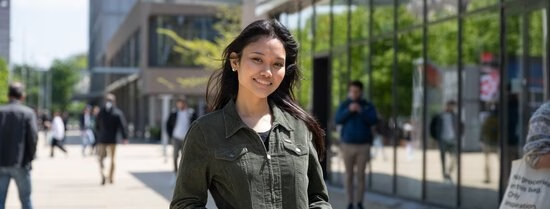The study programme in a nutshell
Rapid digital transformations, such as artificial intelligence, robotics, and algorithms, change the organisation of work. This raises questions on the individual, organisational, and societal level. For example:
- How does AI reshape collaboration and communication among employees?
- Are hierarchical relationships at work restructured by robotisation?
- Does platformisation influence our understanding of self-employed workers?
The programme provides you with multiple perspectives and tools to study digital technologies in the changing world of work (building on insights from Psychology, Sociology, and Public Administration).

Curriculum
This master programme offers both a theoretical and real world understanding of the changing organisation of work. We will provide many opportunities to apply classroom concepts to the real world, for example by going on fieldtrips to organisations, formulating policy advice, and developing coaching and consultancy skills.
The specialisation seminars will be taught by at least two professors, coming from different fields (e.g., a sociologist and a psychologist) to shed light on phenomena using different academic lenses, illustrating how this will yield different insights, all necessary to get a comprehensive understanding of digitalisation in work and society. The classes will be taught in small groups with lots of room for discussion.
For your thesis you will have the opportunity to join a thesis group that will be supervised by two professors from different fields, again, to secure the multidisciplinary focus of this master and to provide you with a broad perspective. If you prefer to complete your thesis without a group, you will also be provided with two supervisors from different academic backgrounds.
The curriculum is subject to change. No rights can be derived from this information (including the information via the hyperlinks).

Field trips
During the academic year, you will go on several field trips. Last year for example, we went to the Port of Rotterdam. During a one-hour boot tour, we learned all about technological innovation in the harbour and how this relates to an increase of certain jobs. Apart from seeing what this master is all about in real life, these trips are a good way to get to know your fellow students and lecturers.

Mode of education
The programme consists of 60 EC. It is comprised of one introductory course, two specialisation seminars, one elective and a thesis. Next to studying social scientific approaches from different fields (Psychology, Sociology, and Public Administration), you will be able to participate in field trips and seminars.

Electives
The programme features some electives in block 2, but electives can also be selected from courses offered in other master specializations in Psychology, Sociology, and Public Administration.
